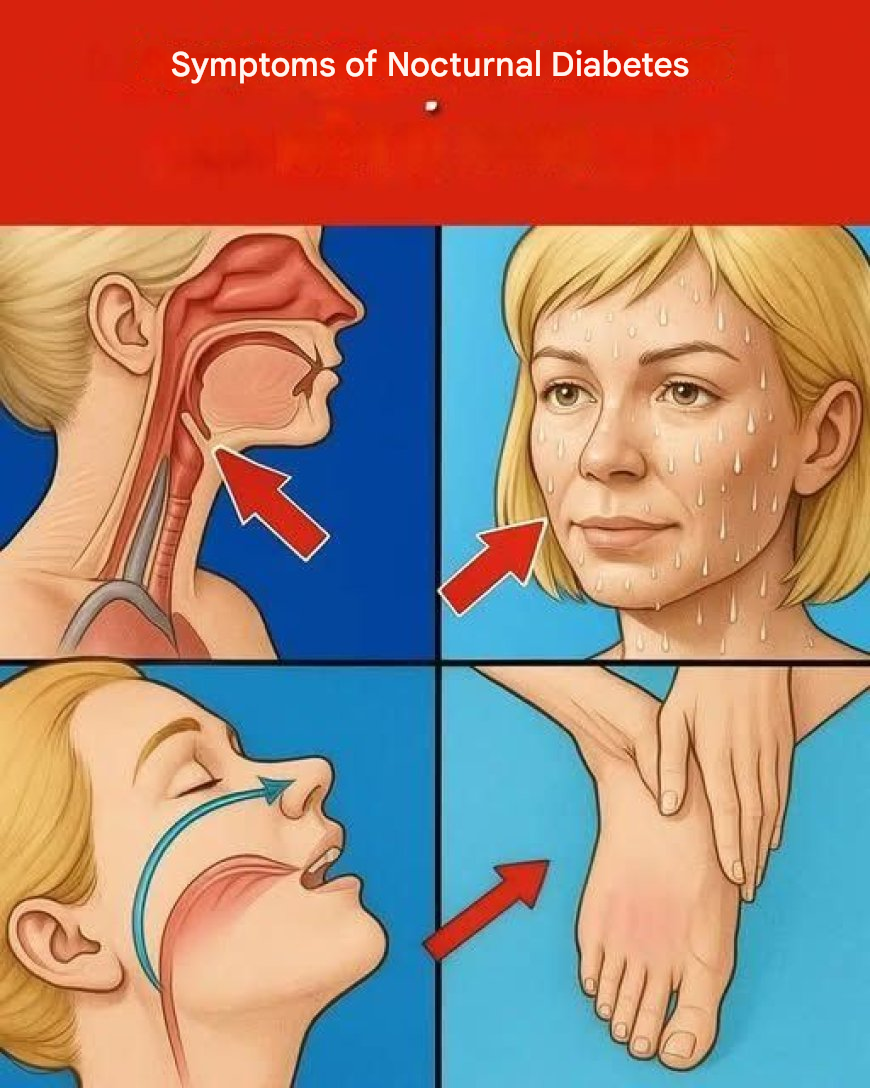
5 Symptoms of Diabetes That Occur at Night
Night sweats: Heavy sweating for no apparent reason may be associated with hypoglycemia (sudden drop in blood sugar).
Nighttime hunger: A sudden, insatiable appetite in the middle of the night can be a sign of a blood sugar imbalance.
Insomnia and frequent awakenings: A brain with insufficient blood sugar levels has a harder time falling asleep and getting a deep, restful sleep.
Why does diabetes disrupt your nights so much?
Imagine your body as an orchestra: to play a beautiful symphony, each instrument must be perfectly tuned. In the case of diabetes, it’s as if some musicians play out of tune. The result: repeated nighttime awakenings that disrupt your natural rhythm.
Blood sugar fluctuates naturally throughout the night. In diabetics, these fluctuations are more extreme, causing a real emotional roller coaster: peak of hyperglycemia at the beginning of the night, hypoglycemia in the early morning…
How to react to these nocturnal symptoms? If you recognize several of these signs, it is important not to ignore them. Here are some simple steps to follow:
Consult a healthcare professional: only a doctor can confirm the diagnosis through appropriate tests.
Adopt good eating habits: choose a light dinner, high in fibre and low in fast sugars to stabilise your blood sugar throughout the night.
Adopt a regular sleep routine: going to bed and getting up at regular times helps the body to better meet its energy needs.
If you’ve already been diagnosed, monitor your blood sugar levels continuously with modern devices to avoid unpleasant surprises at night.
Vorbeugen ist besser als heilen: ein Sprichwort, das man nicht übersehen sollte
In Frankreich wissen schätzungsweise 500.000 Menschen nicht, dass sie Diabetes haben. Es ist ein bisschen wie Nachtfahren ohne Scheinwerfer: gefährlich und unberechenbar. Das frühzeitige Erkennen der Anzeichen verbessert nicht nur die Lebensqualität, sondern hilft auch, Langzeitkomplikationen zu vermeiden.
Ein einfacher Bluttest, der oft während eines Arztbesuchs durchgeführt wird, kann ausreichen, um Licht in Ihre Situation zu bringen.
Zusammenfassend
Unterschätzen Sie nicht, was Ihre Nächte Ihnen zu sagen versuchen. Wenn Durst, Harndrang oder Nachtschweiß zu regelmäßigen Besuchern Ihrer Nächte werden, ist es an der Zeit, auf Ihren Körper zu hören. Denn besser zu verstehen bedeutet bereits, sich besser zu schützen!